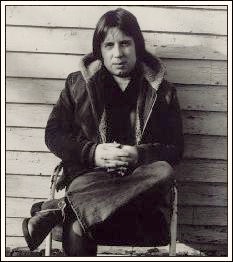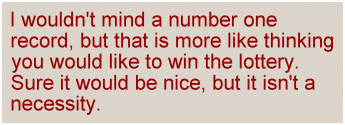|
An Interview with

Jim Palana has been a face on the folk scene
in Boston for close to forty years. We asked him about his career, his
influences, and the place that making music holds in his life.
Boston Beats: Would you state your name,
 age
and age
and
occupation for the record please?
Jim Palana: Jim Palana, age 53. I actually work in a hospital full
time.
BB: How did you get into music and when did you
learn how to play?
JP: Well, that happened in the early sixties. I was a "writer" as
soon as I could write, and I was reading at a pretty advanced level when I
was young, so I would read a lot of poetry and try to mimic what I liked.
The first kind of music I got into was jazz. My uncle was a jazz
buff and had the only stereo in the
family, so it was what I had to listen to. I hadn't really thought
about playing [guitar] until I heard Dylan. At that point I was
writing poetry, but I was getting frustrated because it wasn't getting
published. It was then that I realized that there was another way to
get published, and that was to write music. I took up the guitar with the
purpose of trying to communicate through music rather than through poetry.
At that time a folk scene was starting to spring up, and coffee houses
were starting to show up. It all just started from there.
BB: When did you write your first song?
JP: Well, that would have been in the early sixties. I started
playing on stage in '65 and already had a couple of songs by then-combined
with three chords and a cloud of dust.
BB: Talk about your song writing style. How does
a song usually come about for you?
JP: It's changed over the years. Back then I wanted to write, so I
was writing every day and I thought that was the approach to take.
It wasn't until the early seventies that I realized I wasn't as good a
poet as I thought I was, and that I didn't have the verbal agility that
was needed. I was just mimicking my influences rather than having a
voice of my own. It was then that I turned 180 degrees in my way of
writing. I started to simplify things, and in the process created my
own voice by just trying to communicate better.
 BB:
What are some of your influences? BB:
What are some of your influences?
JP: All those people I started listening to back in the sixties.
People like Tim Harden, Fred Neil, Gordon Lightfoot, Bob Dylan and others.
BB: Earlier in your career you had a complete
focus on music, but as things changed you concentrated other parts of
life: career and family to name a few. What keeps you going? What
brings you out to perform, since this isn't your focus as a career?
JP: I like to play, I like to make music, I like to play with my friends
and I just love to communicate with people. My notion of success is
no different now than it was when I started playing. I was never into fame
or fortune. I just like to play; it is as simple as that. I
decided early on that I didn't want to make music my life, but that I
wanted music in my life.
BB: What is your experience with recording?
JP: I've done three albums to date. The first one I did was in '83.
It was basically a calling card to let people know I was around, because I
had been in Europe for three years and prior to that I was playing in
bands. I just needed something to give to clubs and to local folk
radio stations in hopes of getting some work. I really just went to
Berkley and cranked it out in an afternoon. For the second CD and the
latest CD, I just wanted to get my music recorded. I realized I was
getting older, and I wanted to have that as record of my music. I
also get a thrill out of working with people that I would otherwise not
get a chance to work with. I was able to pull together some of my
friends for this latest CD, and that was a real thrill for me. Guys
like Tony Medeiros, who's been a friend for thirty-odd years, and is one
of the better guitar players around. Also Ken Rebeck, who plays the
mandolin on the CD. I reconnected with him from back in the sixties
and really got to know him through his older brother. Ken got me
interested in acoustic music early on as well. Martin Grosswendt was
a guy I had lost track of back in the seventies. He was recording
blues and was one of the first to record on the Filo Records name up in
Vermont. Luckily, he was keeping in touch with Tony and doing some
records with him, so I was able to talk with him and have him on this
latest album.

BB: Let's talk about playing live. What makes for a good show, and what's your best
show so far?
JP: The "best" would be hard to say
because there have been so many over the years. For me a good show
is one where the people are there to hear the music and I have their
attention. That's all you can really ask for. I can probably tell
you some really great horror stories though, of shows that didn't go well.
Especially in the seventies when I was trying to support myself with
music. I played some gigs that'd make you want to cut off your hand.
But every musician goes through that, it's just part of the process.
BB: You've played all over the country. How has
that experience been?
JP: Right in the beginning I signed on with a management company.
That was when I got my first real taste of the other side of music, the
business side. They wanted me to play certain gigs, and while some
were good, most were not. It was then that I realized I didn't want
to be involved with that side of music. I decided to take the
romantic approach, and go across the country on my own and play. I
discovered early on that you really have to be ambitious in order to
succeed in that kind of trip, and I knew that wasn't for me. Music
started to lose its fun for me. I needed to not have music be
something I used as work.
BB: What are some of your favorite venues to play
around Boston?
JP: Club Passim has always been a favorite place to play. Most of
the coffee houses are great places to play. The South Shore Folk
Music Club in Kingston has been one I've been playing in since it started.
Linden Tree and Bridgewater of the Common are good places to play, because
people come for the music. Perks in Norwood is a place I've been
playing over the past five years and while they're a business that has
people coming and going, on a good night people are receptive and I always
love that. I have always liked playing for some different benefits as
well.
BB: What benefits have you been a part of, and
how was the experience?
JP: I've done benefits for the South Shore Humane Society. They do a
"Folk and Fur Festival" every fall to raise funds and awareness for pet
adoption. I've done that for the past three or four years, because
it's fun and because I can. I did a benefit for the homeless at the
Mozaiac Room in Avon recently. It was great to be a part of that with
a number of big name people. I also did a fundraiser recently for a
scholarship in the name of a person I once knew, a writer, who had passed
away and a scholarship fund was setup in his name. I'm always open
to doing things like that because it's nice to know your music can help
other people.

BB: If you could play on stage with anyone alive,
who would it be?
JP: Wow, that's a good question. I don't know, maybe I could answer
it this way. Way back when I had started I had a dream-that's still
is a dream since I haven't done it-but I wanted to go to either New York
or Nashville and play with my favorite musicians from all the records I
like. They're people that aren't that famous unless your reading
liner notes. People like Kenny Buttry, Norbert Putnam, Norman Blake
and Yasser Clemens.
BB: What do you hope people will get out of your
music?
JP: I just hope it will bring them some happiness or some relief.
Really nothing loftier than that. Like I said, I really have no
other agenda than that.
BB: If your music is a source of relief and
happiness for others, then what do you use as a source for relief?
JP: Same thing. What can be better than writing a song and seeing a
person responding in a positive way? It really is what "it" is all
about. I wouldn't mind a number one record, but that is more like
thinking you would like to win the lottery. Sure it would be nice,
but it isn't a necessity.
BB: What advice would you give to aspiring
musicians?
JP: Just learn your craft. Learn who your listeners are and learn
how to communicate. You have to appreciate the opportunities you
have, good or bad.
BB: What's next for Jim Palana?
JP: Well, the new album is coming out and that will probably be the last
one for a while. I'll be playing out and just doing what I do with
my family and my life, and hopefully just enjoying that.
BB: Thanks for your time and sharing your
experiences with Boston Beats.
JP: Not a problem, you guys seem to be on the right path to something
pretty special that everyone has been looking for, and I can really see it
taking off. Best of luck.

To learn more about Jim Palana, visit his website
at
http://www.geocities.com/jimpalana/
*Pictures courtesy of
http://www.geocities.com/jimpalana/
|